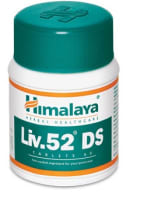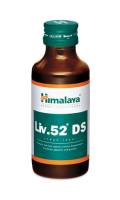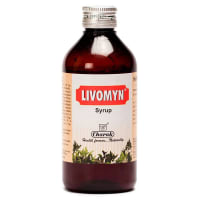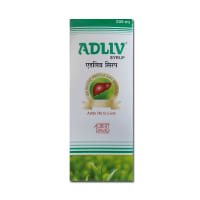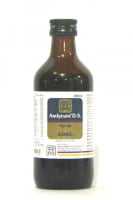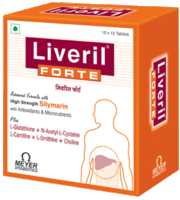USED FOR:
Hepatic encephalopathy
COMPOSITION:
Rifaximin (100mg/5ml)
Therapeutic Uses:
gastro intestinal

Interaction with alcohol is unknown. Please consult your doctor.

WEIGH RISKS VS BENEFITS
Gifaxin 100 mg Syrup may be unsafe to use during pregnancy.Animal studies have shown adverse effects on the foetus, however, there are limited human studies. The benefits from use in pregnant women may be acceptable despite the risk. Please consult your doctor.

Gifaxin 100 mg Syrup is probably safe to use during lactation. Limited human data suggests that the drug does not represent a significant risk to the baby.

SAFE
Gifaxin 100 mg Syrup does not usually affect your ability to drive.

Gifaxin 100 mg Syrup is probably safe to use in patients with kidney disease. Limited data available suggests that dose adjustment of Gifaxin 100 mg Syrup may not be needed in these patients. Please consult your doctor.

Gifaxin 100 mg Syrup should be used with caution in patients with severe liver disease. Dose adjustment of Gifaxin 100 mg Syrup may be needed. Please consult your doctor.
Uses of Gifaxin Syrup
Gifaxin 100 mg Syrup is used in hepatic encephalopathyIt is also used in the treatment of infectious diarrhoea in adult and children (>2years of age and above).
How to use Gifaxin Syrup
Take this medicine in the dose and duration as advised by your doctor. Check the label for directions before use. Measure it with a measuring cup and take it by mouth. Shake well before use. Gifaxin 100 mg Syrup may be taken with or without food, but it is better to take it at a fixed time.
How Gifaxin Syrup works
Gifaxin 100 mg Syrup is an antibiotic. It works by killing the ammonia-producing bacteria in the gastrointestinal tract which reduces recurrence of hepatic encephalopathy.
Common Nausea, Vomiting, Dizziness, Headache, Flatulence, Bloating, Constipation.
Expert advice for Gifaxin Syrup
While you are taking rifaximin, it may cause a reddish discolouration of the urine. This is quite normal. If you are using oral contraceptives take additional precautions while taking rifaximin. Oral contraceptives may not work as well when you are taking this medicine and/or when you have diarrhea. Rifaximin does not normally affect the ability to drive and use machines, but may cause dizziness in some patients. If you feel dizzy you should not drive or operate machinery. if you are pregnant or breast feeding speak to your doctor before starting the drug. To make sure rifaximin is safe for you, tell your doctor if you have:
liver disease
diarrhea with a fever
watery or bloody diarrhea
Treatment with any antibiotic including rifaximin may cause severe diarrhea. You should stop taking it and contact your doctor immediately. Diarrhea may even occur few months after the drug has been stopped.
Q. Is Gifaxin an antibiotic?
Yes, Gifaxin is an antibiotic that kills bacteria, which can cause a disease called hepatic encephalopathy (symptoms include agitation, confusion, muscle problems, difficulty in speaking and in some cases coma).
Q. Can I take Gifaxin with amoxicillin?
Gifaxin can be taken with amoxicillin as no interactions have been reported between the two medicines. However, interactions may occur, please consult your doctor before taking the two medicines together.
Q. Is Gifaxin safe?
Yes, Gifaxin is a safe medicine. However, it has its own side effects. It should always be taken for a prescribed duration in prescribed doses as advised by your doctor.
Q. Is Gifaxin a penicillin?
Gifaxin is not a penicillin. It is a non-aminoglycoside semi-synthetic, nonsystemic antibiotic derived from rifamycin .
Q. Does Gifaxin kill good bacteria?
Gifaxin like other antibiotics can alter the normal bacteria in the intestine and this can lead to severe diarrhea.
Q. Does Gifaxin work for small intestinal bacterial overgrowth (SIBO)?
Gifaxin is not indicated for the treatment of small intestinal bacterial overgrowth (SIBO). In this condition, there is a presence of lot of bacteria in the small intestine which can cause chronic diarrhea and malabsorption.
Q. Does Gifaxin cause orange urine?
Yes, the use of Gifaxin may cause a reddish discoloration of the urine.
Q. Does Gifaxin affect oral contraceptives (birth control)?
Interactions have not been reported between Gifaxin and oral contraceptives (birth control pills). However, interactions may occur. Please consult your doctor before taking the two medicines together.
Q. Does Gifaxin work for irritable bowel syndrome (IBS)?
Gifaxin has not been approved for the treatment of irritable bowel syndrome (IBS). Please consult your doctor before using Gifaxin for irritable bowel syndrome (IBS).
Q. Does Gifaxin cause weight gain?
Weight gain has not been reported as an effect of Gifaxin.
Q. Does Gifaxin cause diarrhea?
Diarrhea is a common side effect of Gifaxin. If you have severe diarrhea during or after using Gifaxin, you should stop taking Gifaxin and contact your doctor immediately.
Q. Does Gifaxin kill Helicobacter pylori?
Gifaxin has not been reported to kill Helicobacter pylori.
Q. Can paracetamol be taken with Gifaxin?
Gifaxin can be taken with paracetamol as no interactions have been clinically observed between paracetamol and Gifaxin. However, interactions may occur. Please talk to your doctor in case you require to take the two medicines together.
Q. Can I take Gifaxin with ibuprofen?
Gifaxin can be taken with ibuprofen as no interactions have been clinically observed between the two. However, interactions may occur. Please talk to your doctor in case you require to take the two medicines together.
Q. Does Gifaxin cause constipation?
Constipation is a rare side effect of Gifaxin. Please consult your doctor in case you experience intolerable constipation.


 Gifaxin 100 mg Syrup
Gifaxin 100 mg Syrup  Bookmark
Bookmark

